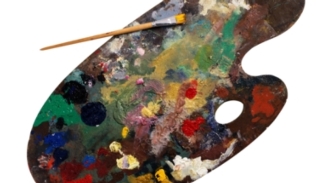
带有“艺术”标签的照片与房价攀升的联系
Photos Tagged as Art Linked to Rising Property Prices
带有“艺术”标签的照片与房价攀升的联系
Researchers found that neighborhoods with a higher proportion of Flickr photos tagged "art" saw a higher spike in property prices.
研究人员发现,拥有更多附带“艺术”标签的照片的社区实际上出现更明显的房价上涨。
撰文:克里斯多夫·因塔利亚塔(Christopher Intagliata)
翻译:陈旭琦
审校:马小崩
Urban gentrification is thought to happen like this: artists move into lower income neighborhoods, looking for cheap gallery and living space. "So they move into these neighborhoods, and they make these neighborhoods really pleasant to live in. They kind of create a nice kind of buzzy scene." Chanuki Seresinhe, a data scientist at the Warwick Business School, in the U.K. Next come the hip cafes and shops. "But what happens is of course then other people are then attracted to move into these areas. And so the demand for these places increases, and housing prices then go up."
城市的乡绅化(gentrification)被认为是这样发生的:艺术家们搬入收入更低的社区,寻找低价的画廊和生活空间。“所以他们搬入这些社区,并且他们使这些社区十分宜居。他们在一定程度上创造了一种美好的热闹场面。”英国华威商学院(the Warwick Business School)的一位数据科学家查努基·塞勒斯赫(Chanuki Seresinhe)如是说。接下来时髦的咖啡馆和商店也入驻这些社区。“但是之后必然有其他人被吸引而搬到这些区域。所以对这些地方的需求增加,这些地方的房价就跟着上涨。”
So the story goes. But Seresinhe and her colleagues wanted to see if online data told the same story. So they analyzed four and a half million photos uploaded to Flickr, from 2004 to 2013—each geotagged somewhere in London. Then they tallied how many of each neighborhood's photos were tagged "art." And they found that neighborhoods with a higher proportion of "art"-tagged photos actually did see a higher spike in property prices during the study period. The results are in the journal Royal Society Open Science. [Chanuki Illushka Seresinhe et al, Quantifying the link between art and property prices in urban neighbourhoods]
故事就是这样发展的。但是塞勒斯赫和她的同事们想知道在线数据是否描述同样的故事。所以他们分析了四百五十万份在2004年到2013年间上传到Flickr网站的照片——每一份的地理坐标都位于伦敦。然后他们统计了有多少社区的照片附带“艺术”的标签。结果发现,在研究期间内,拥有更多附带“艺术”标签照片的社区实际上出现更明显的房价上涨。这些结果刊登在《皇家开放科学杂志》(Royal Society Open Science)。
Foursquare and Twitter data can also track gentrification trends, as another recent study showed. But the link here isn't necessarily predictive—maybe neighborhoods with rising prices just attract more photo-tagging art enthusiasts. "That's why I wouldn't say, you know, go out and buy a house in an artsy neighborhood, you're going to be rich in five years' time. Because sometimes there could be other factors involved."
另一项近期的研究显示,Foursquare网站和Twitter网站的数据也能追踪城市乡绅化趋势。但是这里提到的联系不一定就能提供预判——也许房价上升的社区仅仅吸引了艺术照片爱好者。“这就是为什么我不会说,你明白的,到那些充满艺术气息的社区买房,然后你在五年的时间里会变得富有。因为有时这里会包涵其他的因素。”
But the connection does suggest your photos and social media posts can be used for more than bragging about brunch. "Sharing this data could be so valuable for academic research. We can actually use this data to do something good in the world." Like giving local organizations and urban planners a better look at how and why cities change. All you've got to do, is add a few tags.
但是这个联系的确说明你的照片和社交媒体的发帖可以不仅仅用来炫耀中午晚上吃了啥。“对学术研究,共享这一数据可能是有价值的。我们实际上可以利用这一数据在全球范围内做点儿有用的事。”例如帮助地方组织和城市规划者更好地理解城市怎样改变以及为什么会改变。在此之前你要做的只是添加一些标签。
未经书面许可任何人不得复制或镜像
京ICP备11000850号-1
 京公网安备11010502039775号
京公网安备11010502039775号 信息网络传播视听节目许可证0111611号
国家科技基础条件平台

















